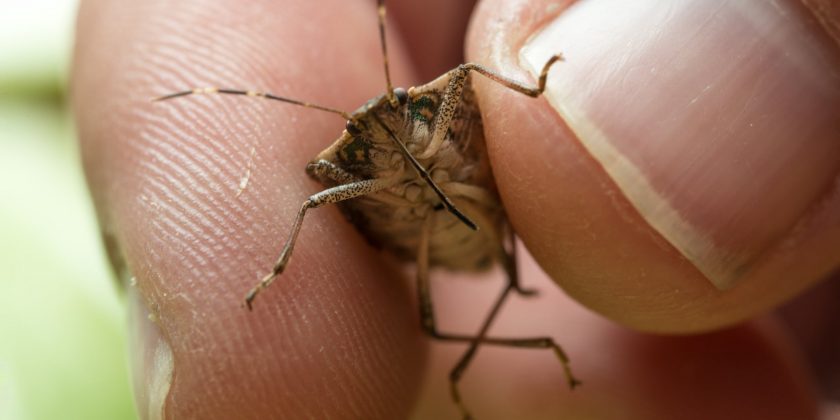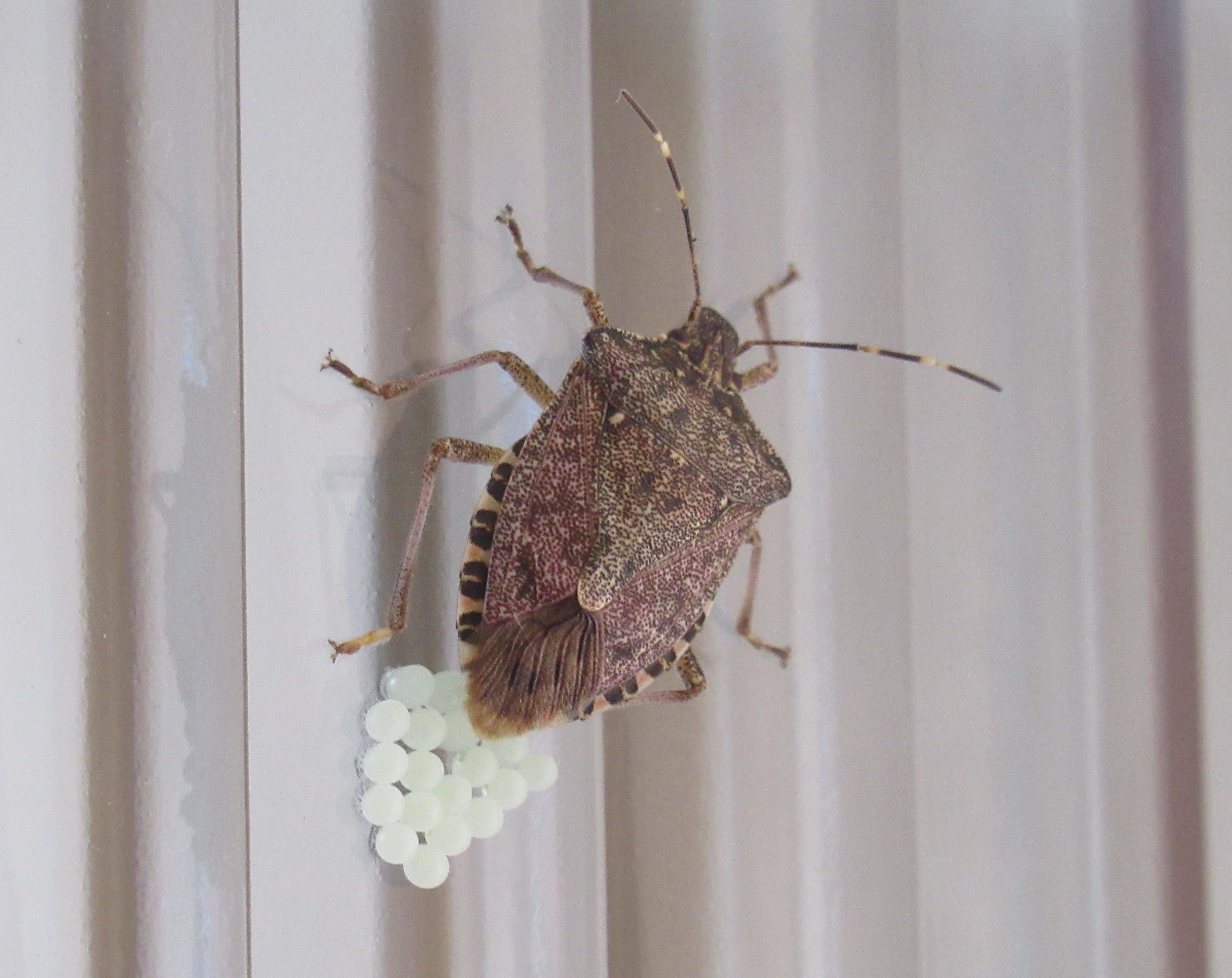Dealers and consumers are facing difficulties laying their hands on new cars lately. The chip shortage means stocks of new vehicles are perilously low, and global logistics networks are under strain from a variety of factors. For the Australian market, though, there’s an extra problem to contend with, and it walks on six legs. Shipments of new cars are being held up as authorities tangle with cargo vessels carrying invasive stink bug species, reports ABC News.
The pest in question is known as the brown marmorated stink bug, with its peak season being from September to April. In these months, Australian ports apply stricter biosecurity rules to incoming shipping in order to protect the island nation from the pest. With countries across Asia and Europe already invaded by the pernicious creature, as well as the US, cargo ships entering from these countries often need to be fumigated before entering port.
A brown marmorated stink bug, pictured laying eggs on glass.
Australia takes quarantine and biosecurity seriously, with the agricultural industry accounting for around 14 percent of the country’s exports, to say nothing of issues like food security. Outside invaders like the stink bug could have a “devastating effect” on production if introduced, according to Andrew Tongue of the Federal Department of Agriculture, Water and the Environment. “The bug’s ability to hitchhike, fly and to feed on a wide range of plant hosts enables it to spread rapidly when it is introduced into new areas,” added Tongue.
The brown marmorated stink bug has a useful ability to lay dormant for months, often hiding in equipment, which helps it survive extended shipping journeys. Upon reaching warmer temperatures, the bugs then emerge and begin hunting for new homes and food. Plus, as a further irritation to humans, they smell horrible when crushed. Stink bugs were detected by border officials 232 times last year in Australia, creating plenty of work to deal with the problem.
According to Joshua Dowling, national motoring editor for (unrelated) Drive.com.au, each season sees “between two and half a dozen ships carrying cars held off-shore while the stink bugs are treated.” Delays are on the order of four weeks while the fumigation process is undertaken.
The hold-ups are unwelcome enough in a normal year, but become a major headache when customers are already waiting months for new vehicles. For example, Toyota, like most automakers, has not been spared by the chip shortage. Sean Hanley, Toyota Australia vice president of sales, notes that “for one-third of Toyota’s vehicles, the wait time is four months or less. For three-quarters of the line-up, it’s six months or less.” Adding a further month on to that to deal with stink bugs won’t be welcomed by customers.
Neither bugs nor scarce semiconductors are slowing Aussie enthusiasm, however, with sales up 21% in September 2021 compared to last year. Used car prices have also been rising thanks to the limited supply of new vehicles. “If you do want to get a car, it is worthwhile considering getting in the queue,” commented Tony Weber, chief executive of the Federal Chamber of Automotive Industry. “At least getting your order in, so that when the cars do come through, you’ve got a spot,” Weber added.
The stink bug problem isn’t going away, with the creature now well established in Asia, Europe, and the USA. Australia’s border staff will aim to maintain strict protocols to prevent the insects making a go of life on the mainland. The agriculture industry is very much depending on it.
Source: Read Full Article

